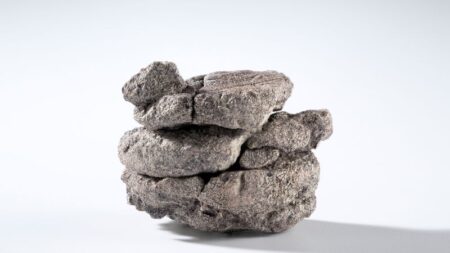Ruth Chepngetich, the notable holder of the women’s marathon world record, has found herself in a precarious situation as she has been provisionally suspended by the Athletics Integrity Unit (AIU) due to a doping violation. The AIU released a statement indicating that a banned substance, specifically the diuretic hydrochlorothiazide (HCTZ), was discovered in a sample collected from the Kenyan athlete on March 14, 2025. The repercussions of this finding have thrown her illustrious career into uncertainty.
Chepngetich, now 30 years old, set a remarkable world record while winning the Chicago Marathon on October 2024, finishing with an astonishing time of two hours, nine minutes, and 56 seconds. This remarkable achievement not only solidified her status as one of the top marathon runners but also eclipsed the previous world record held by Ethiopian athlete Tigst Assefa, which was set during the Berlin Marathon in 2023. Chepngetich’s performance was met with much acclaim, but the recent developments have overshadowed her accomplishments.
Hydrochlorothiazide is primarily utilized in medical practice to treat conditions such as fluid retention and hypertension, but it has been classified as a prohibited substance under the World Anti-Doping Agency (WADA) Code, making its use strictly forbidden for athletes like Chepngetich at all times. Furthermore, the nature of this substance allows it to function as a masking agent, which makes the findings of her sample, which contained 3,800 nanograms per milliliter (ng/mL) against the minimum reporting threshold of 20 ng/mL, particularly concerning.
While initially not suspended when notified on April 16, 2025, Chepngetich opted for a voluntary provisional suspension on April 19, as the AIU began its investigation. This proactive step indicated her willingness to cooperate as the inquiry progressed. As the investigation unfolded over the ensuing months, the AIU eventually issued a Notice of Charge and deemed it necessary to impose an official provisional suspension on Chepngetich. Brett Clothier, head of the AIU, underscored the procedural nature of these developments during a statement that emphasized the organization’s commitment to maintaining integrity in athletics.
The fallout from this doping case has been considerable, sparking discussions about the pressures athletes face in the highly competitive realm of professional sports. Athletes often grapple with the thin line between achieving personal bests and the temptation of doping, which, despite its serious consequences, continues to be a persistent issue in athletics. As the world of sports becomes increasingly vigilant about maintaining a level playing field, cases like Chepngetich’s draw attention to the ongoing battles organizations face against performance-enhancing drugs.
The suspension raises significant questions regarding Chepngetich’s future in competitive marathon racing. Having reached the pinnacle of her sport, the implications of this suspension might have lasting effects not only on her career trajectory but also on her reputation as one of the premier athletes in women’s distance running. This incident serves as a poignant reminder that the pursuit of athletic excellence can sometimes lead individuals down troubling paths.
In conclusion, Ruth Chepngetich’s provisional suspension is a stark reminder of the complex dynamics within competitive athletics. It illustrates the ongoing struggles with doping in sports and emphasizes the importance of upholding integrity. As Chepngetich awaits further developments in her case, the athletics community watches closely, hoping this episode will catalyze discussions around ethics and the pressures faced by athletes in a world that demands peak performance. The resolution of this incident could prove pivotal, influencing not only Chepngetich’s career but also the broader landscape of professional athletics in Kenya and beyond.







